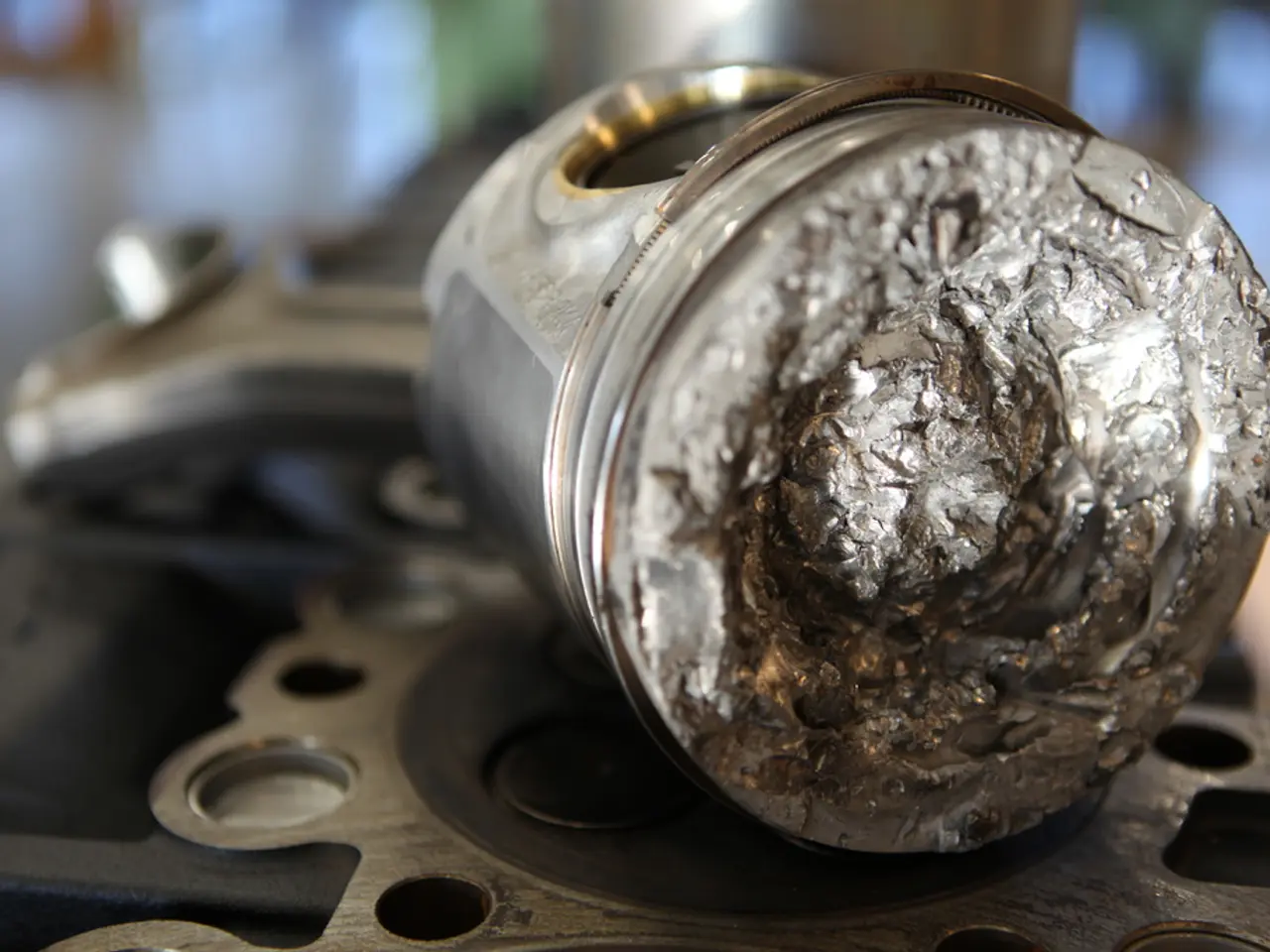Danger looms over Bremen's steel facility as researchers warn of imminent threat
In a recent development, global steelmaking giant ArcelorMittal has decided against investing in green steel production at its Bremen steelworks, a move that has caused significant concern among political and industrial circles in Germany. The decision comes after the company announced it would not convert the Bremen steelworks to green steel, citing unfavorable market conditions and a lack of profitability for CO2-reduced steel production.
The Bremen steelworks, one of ArcelorMittal's plants with over 3,000 employees, has been a key contributor to the city's greenhouse gas emissions, accounting for around half of them. The planned investment of about €2.5 billion, supported by €1.3 billion in public funding from federal and state governments, aimed to replace coke-fired blast furnaces with a direct reduction iron (DRI) plant powered initially by natural gas and later by green hydrogen. This project was seen as a crucial step towards decarbonizing the steel plant.
However, ArcelorMittal has opted to focus its efforts on locations like France, which can offer "competitive and planable electric power supply." This decision has sparked outrage among approximately 2,000 employees who protested last week, expressing their concerns about the future of the steelworks and their jobs.
Torben Stuhrman, a professor at the University of Bremen and a vocal critic of ArcelorMittal's decision, has warned that production without green transformation will become increasingly expensive due to rising prices in the EU emissions trading system. He has also expressed his concerns about the impact on the Bremen steelworks and the potential closure of the plant as early as 2045 due to the lack of green transformation.
The University of Bremen is home to the "hyBit" research project, focusing on the climate-friendly transformation of industry. The project, funded by the Federal Ministry of Education and Research with over 30 million euros and involving around 100 scientists, continues to progress.
The decisions regarding the Bremen steelworks are made in Luxembourg and London, where ArcelorMittal is headquartered. In response to ArcelorMittal's decision, German Finance Minister Lars Klingbeil has proposed a "steel summit" involving companies, trade unions, and state governments to discuss the future of the steel sector and green steel prospects in Germany.
This development raises several potential future implications. ArcelorMittal’s move suggests a potential relocation of investments into greener steelmaking methods outside Germany, affecting Germany's position as an industrial and green steel hub. The cancellation also raises concerns about job preservation in the steel industry in Bremen and Brandenburg, prompting government calls for coordinated action and dialogue.
Moreover, the development underlines challenges in balancing industrial decarbonization with economic viability, potentially influencing future funding mechanisms and policy frameworks to better support green transitions in heavy industry. Other major producers such as ThyssenKrupp and Salzgitter, who also received subsidies, may face increased pressure to justify their green steel projects amid rising energy costs and market conditions.
In summary, ArcelorMittal’s withdrawal from green steel investment at Bremen marks a significant setback for Germany's steel decarbonization plans and raises urgent questions about the competitiveness and sustainability of green steel production in the country under current economic and energy market realities.
- The University of Bremen is currently involved in the "hyBit" research project, an endeavor focusing on the climate-friendly transformation of industry, specifically environmental science and science.
- Torben Stuhrman, a professor at the University of Bremen, has warned that the continued use of traditional methods in the steel industry without green transformation could lead to increased costs due to rising prices in the EU emissions trading system, which relates to finance and energy.
- The move by ArcelorMittal to abandon green steel production at its Bremen steelworks, despite support from federal and state governments, could potentially impact the country's status as an industrial and green-steel hub, involving both climate-change and industry.




